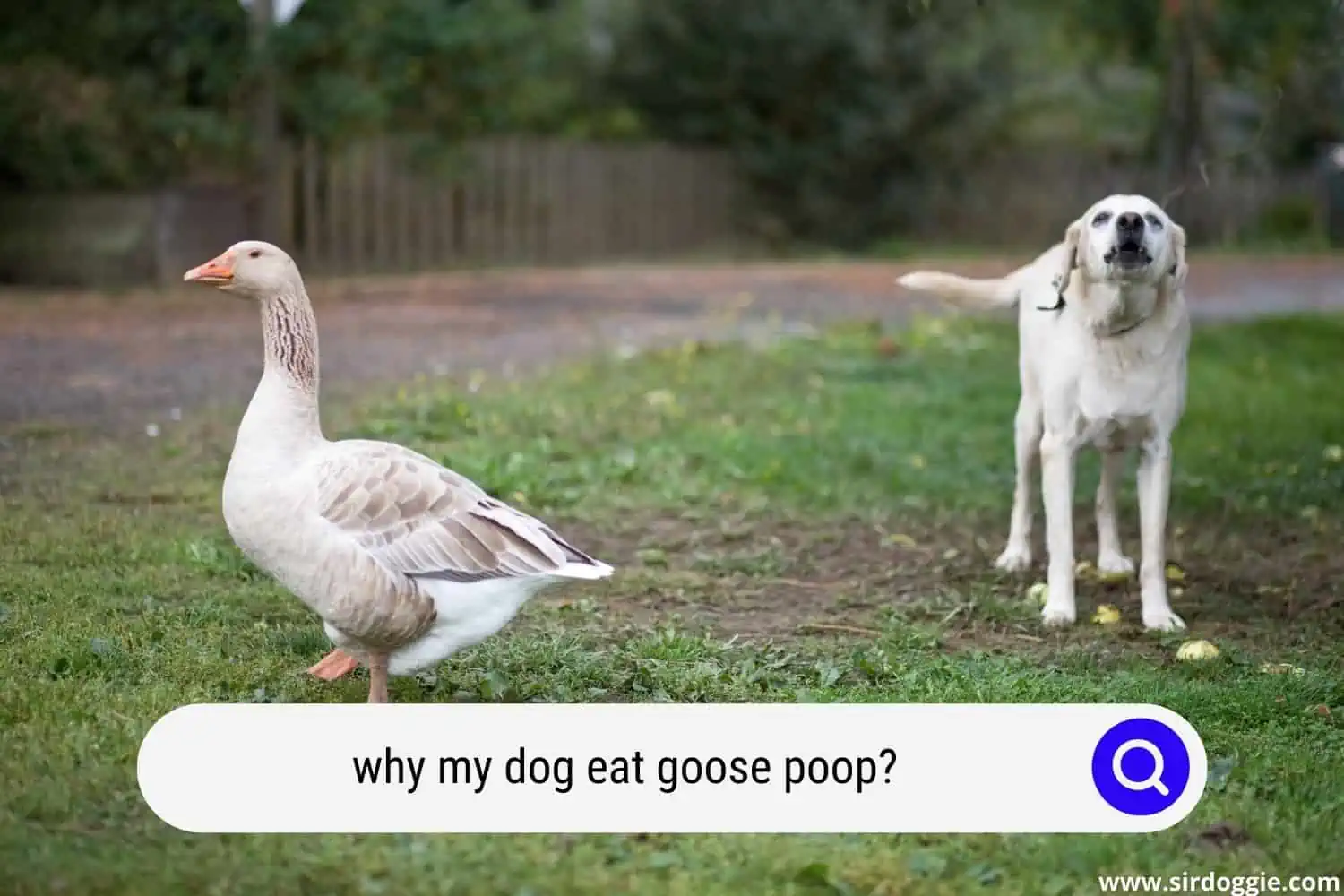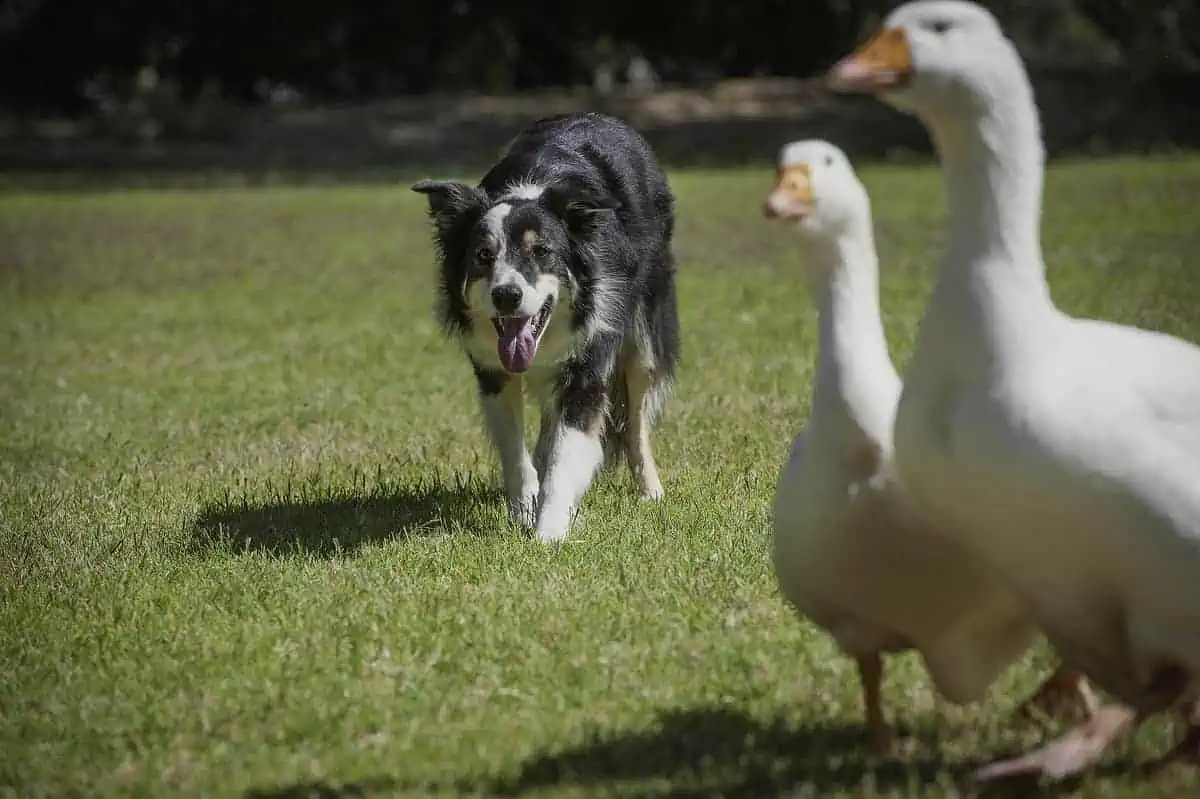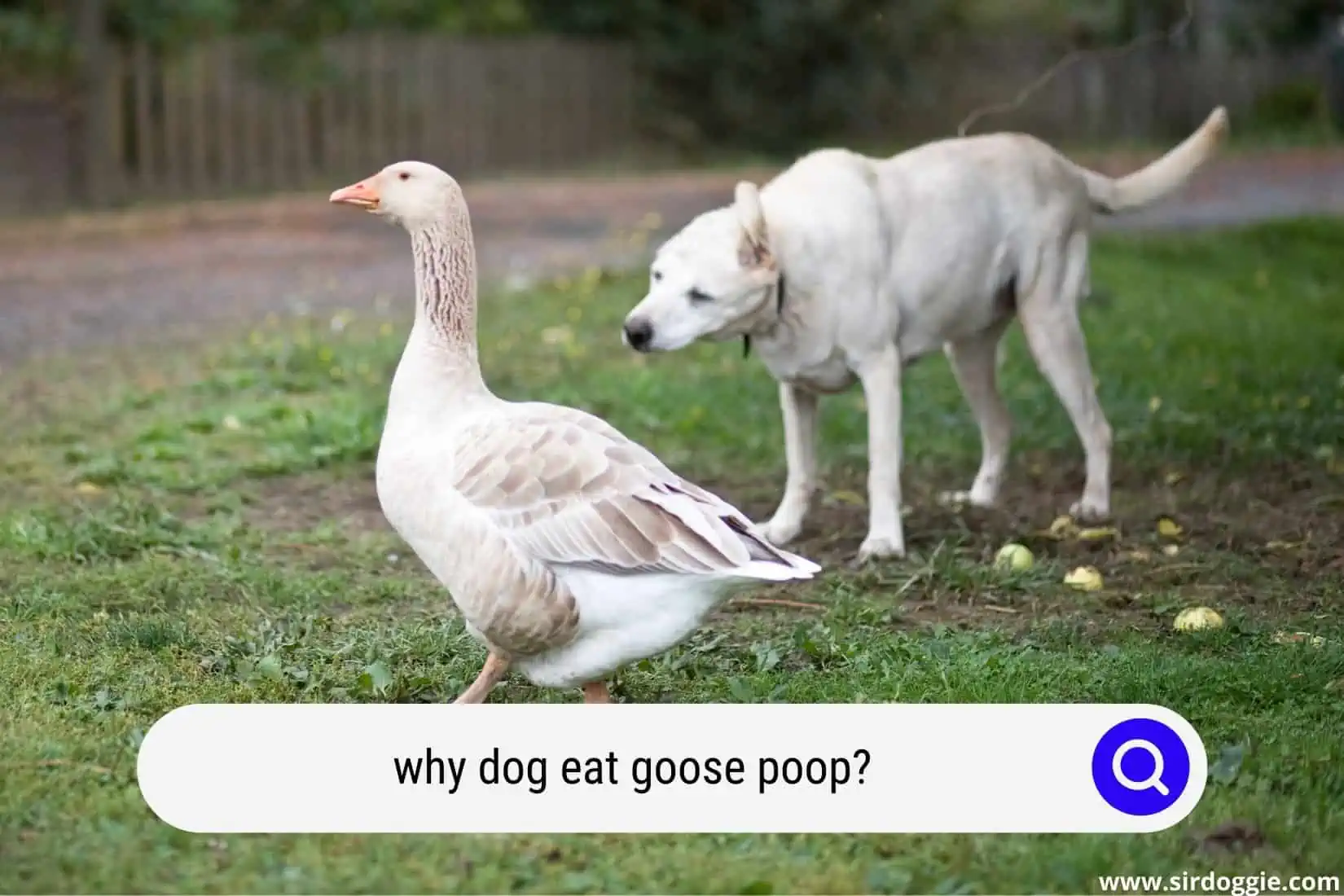Why Does My Dog Eat Goose Poop? Coprophagia Explained
You shouldn’t worry too much if you find your dog chowing down on some geese feces, because as strange as it sounds, dogs that consume goose poop are actually quite normal.

The medical term for this is coprophagia, which is the tendency of living things to consume feces. There are also many physiologic and behavioral reasons why dogs do this, but poop-eating is relatively common.
In this article, you will be able to identify why your dog may consume goose poop if there is anything for you to worry about it, and lastly, what to do to prevent your dog from eating animal poop.
Related Reading: Why is My Dog Eating Grass? Is It Bad?
My Dog Eats Goose Poop?
From birth, mother dogs will begin to lick their puppies to teach them to clean themselves up. Puppies will then get confused by sniffing their mother’s breath.
It smells of fecal odors, which leads to puppies developing the behaviour of consuming their poop. After nine months old, this behaviour typically fades away.
Some studies show that dogs who are not neutered or spayed and live in a household with several other dogs are more likely to be “stool-eaters.
Dogs that are known to be isolated or living in restrictive confinements often lead to coprophagia. Also, dogs fed too close to their feces might connect the two odours and be unable to tell the difference.
In addition to this, some probable reasons why your dog is eating goose poop are the following:
Your Puppy May Be Performing “Puppy See, Puppy Do” Traits
When puppies consume goose poop, it can frequently connect to their puppy traits. We all know that puppies enjoy picking up anything in their mouth so that they can discover whatever it is.
Sometimes, puppies will see to coprophagia in these cases, but this is only a behavioural tactic they soon grow out of.
Your Dog Is Substituting Nutrients & Enzymes
Geese typically eat stems, seeds, and leaves of grass, so their poop will be plentiful in proteins. These proteins and enzymes in geese poop attract dogs.
It is also completely normal and natural for dogs to consume their own feces (autocoprophagia) and feces from other dogs (allocoprophagia).
However, for other species, consuming feces helps obtain essential nutrients.
For example, rabbits will develop health issues and possibly starve young rabbits of their potential life if they do not receive the necessary nutrients from their feces.
Your Dog Simply Likes The Taste Of Goose Poop
As gross as it may seem, your dog will look toward poop to get the nutrition they lack or when they are stressed.
Since dogs overall have more substantial sensory nerves than us humans, they won’t find poop repulsive but rather intoxicating, somewhat similar to how cats find catnip intoxicating.

Do I Have to Worry About My Dog Eating Goose Poop?
Goose feces is particularly appealing to dogs, but it can be harmful to them if the stool is contaminated. It is known that dogs have relatively hearty gastrointestinal tracts, so infections are less likely to occur.
However, It is always better to be safe than sorry when it comes to your pet’s health and safety. A possible bacterial infection concern is Giardia found in goose feces.
What is Giardia?
Giardia is a common parasite found worldwide, and that will invade animals’ intestines.
There are two stages of Giardia: trophozoites and cysts. The trophozoites live in the animal’s intestines and become cysts, which are then shed into the animals’ feces. Giardia cysts can live for weeks.
As soon as another animal ingests it, the cyst will turn back into trophozoites, thus repeating their life cycle. A dog might experience excessive vomiting, weight loss or failure to gain any weight, and even a poor coat appearance when exposed to Giardia.
How to Prevent My Dog From Giardia?
The easiest step you can take to ensure your dog’s health against Giardia is to have fresh water at all times. Having easy access to their water bowl will reduce the chance of them drinking from an uncertain, possibly contaminated water source.
Suppose you are notified that your water source is infected. In that case, you can buy a filter to remove any Giardia cysts that may be prominent in your water system. If you’re unable to get a filter, you can simply boil the water before giving it to your dog.
Some simple steps to take to prevent any cysts from entering your environment are practicing general hygiene and picking up your dog as soon as possible.
If you’re looking for boarding or training facilities for your dog, you should do your research beforehand. Always ensure that the business practices the necessary precautions to disinfect and clean the areas frequently.
Related Reading: Why Does My Dog Poop So Much?
How to Stop My Dog from Eating Goose Poop?
If you are looking for simple fixes to get your dog to stop consuming goose poop, try the following methods:
1. Switch up your walking route
When planning walks with your dog, this should be the first step you try to include in your dog’s day-to-day activities. Scope out an area that is less likely to be occupied by geese and try your best to maintain your dog from locations with a prominent geese population.

2. Keep your dog leashed
Keeping your dog leashed while on a walk may seem like common sense. However, in some areas, you can unleash your pet to roam around public parks. Although, if you are finding that your dog is eating goose poop often, it would be wise to keep it on a leash. Hence, you have 100% control over what your dog comes in contact with.
3. Your vet can prescribe supplemental vitamins
If it comes down to it, you can always contact your vet and have prescribed supplemental vitamins to boost their nutrition.
All in all, it’s relatively common for dogs to consume goose poop. Although if your dog swallows a small amount of goose poop, it won’t harm them. You shouldn’t allow this behaviour to continue because there are so many germs that can cause numerous diseases and health problems to your pet.

Family Dog Expert Author
Hi there! I’m Stuart, a devoted dog lover and family dog expert with over a decade of experience working with our furry companions. My passion for dogs drives me to share my knowledge and expertise, helping families build strong, loving bonds with their four-legged friends. When I’m not writing for SirDoggie, you’ll find me hiking, playing with my beautiful dog, or studying music.